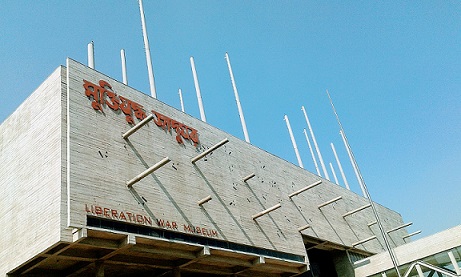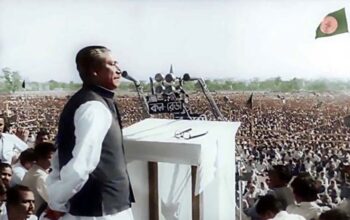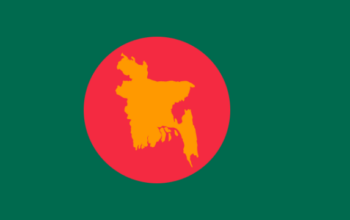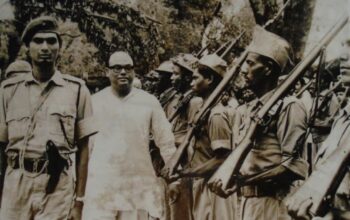- Liberation War Museum Dhaka, Bangladesh
- Documentary Film 1971 by Tanvir Mokammel
- Smriti Ekattor Remembrance of 1971 by Tanvir Mokammel
- Liberation War history short video
- Nine Months to Freedom – Documentary of the nine months of Bangladesh’s fight for freedom
- Muktir Gaan – Tareque Masud
- Blockade – a documentary on Non-Violent actions in the US to stop genocide in Bangladesh
- Our pride and glory: The Mukti Bahini in 1971 Dr. Ahmad Ahsan, Dec 16, 2020, Daily Star
- Bangladesh war: The article that changed history BBC News, Mark Dummett. Dec 16, 2011
- Genocide – Anthony Mascarenhas UK Sunday Times, June 13, 1971 (“The article” referred above)
- Syeda Zohra Tajuddin – রুদ্ধশ্বাস সেসব দিনরাত – উদয়ের পথে published Mar 26, 2021
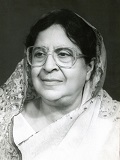
সৈয়দা জোহরা তাজউদ্দীন (২৪ ডিসেম্বর ১৯৩২-২০ ডিসেম্বর, ২০১৩)
সৈয়দা জোহরা তাজউদ্দীনের জন্ম এবং বেড়ে ওঠা ঢাকা শহরে এবং লেখাপড়া করেছেন সমাজ বিজ্ঞানে অনার্স সহ ঢাকা বিস্ববিদ্যালয়ে। তিনি বাংলাদেশের প্রথম প্রধানমন্ত্রী তাজউদ্দীন আহমদের সহধর্মিনী এবং স্বাধীনতাত্তর বাংলাদেশের বৃহত্তম রাজনৈতিক দল বাংলাদেশ আওয়ামী লীগের প্রথম নারী প্রধান। ১৯৭৫ সালে জাতির জনক বঙ্গবন্ধু শেখ মুজিবুর রহমান এবং চার জাতীয় নেতা সৈয়দ নজরুল ইসলাম, তাজউদ্দীন আহমদ, ক্যাপ্টেন এম.মনসুর আলী ও এ.এইচ.এম কামরুজ্জামানের নির্মম হত্যাকাণ্ডর পর, বাংলাদেশ আওয়ামীলীগের যখন চরম দুঃসময় তখন তিনি প্রচন্ড সাহসিকতার সাথে এই দলটির হাল ধরেন। এই দলের আহবায়িকা রুপে তিনি দলটিকে তৃনমূলে সংগঠিত করেন।
তিনি আমৃত্যু আওয়ামী লীগের সভাপতিমণ্ডলীর সদস্য পদে নিয়জিত ছিলেন। সমাজ কল্যাণমূলক কর্ম কান্ডর সাথে আজীবন জড়িত বেগম তাজউদ্দীন স্বাধীন বাংলাদেশের সবচেয়ে প্রাচীন নারী সংগঠন বাংলাদেশ মহিলা পরিষদের সহ- সভানেত্রী এবং আফ্রিকা- এশিয়া সলিডিটারি ইউনিয়নের সহ সভানেত্রী রুপে নারীর অধিকার ও অগ্রগতির জন্যে কাজ করেছেন। । তার তিন কন্যা ও এক পুত্র;
শারমিন আহমদ- রিপি, সিমিন হোসেন- রিমি, মাহজাবিন আহমদ -মিমি এবং তানজিম আহমদ -সোহেল।
- ব্যারিস্টার আমীর -উল ইসলাম: মুক্তিযুদ্ধের স্মৃতি – Memories of 1971, Barrister Amir-ul Islam
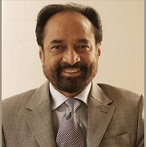
Barrister M. Amir-ul Islam, born on February 2,1936 in Kushtia, Bangladesh, is an eminent lawyer, politician and freedom fighter. He drafted the Proclamation of independence of Bangladesh and served as the Principal Aide and Adviser to First Prime Minister Tajuddin Ahmad in 1971. Barrister Islam was one of the key figures in mandating and supervising Bangladesh liberation war efforts; and initiated numerous diplomatic missions to win international support and recognition of Bangladesh as a sovereign and independent nation. He played very important role as the whip of the Constituent Assembly and a member of the drafting committee of Bangladesh Constitution, 1972. He has held several positions, including Minister of Food 1973–74, Honorary Secretary General Bangladesh Law and International Affairs (BILIA), former President of Supreme Court Bar Association and elected head of Bangladesh Bar Council. He has one daughter Barrister Tania Amir and two sons, Adil Islam Pavlo and Zaid Islam Tito. Barrister Islam resides with his wife Jahanara Amir in Dhaka, Bangladesh.
- Genocide Day & Liberation War – Freedom Fighter & Maj Gen (Rtd) AIM Mustafa Reza Noor – Eye witness of March 25 fateful night: Zoom Lecture, March 26, 2021
- শহীদ মুফতী ও এক গুচ্ছ রুমাল – মোহাম্মদ আনোয়ার হোসেন
- Jatio Sriti Shoudho – A monument of Bangladesh and the world
- When Ravi Shankar was Comrade Robuda
- Nonviolent Fighters for Bangladesh Freedom by Richard K. Taylor
টাইমলাইন স্বাধীনতা ঘোষণা
১। ২৬ মার্চ, ১৯৭১ দিবাগত রাতে বঙ্গবন্ধু শেখ মুজিবুর রহমান স্বাধীনতা ঘোষনা করেন।
গণপ্রজাতন্ত্রী বাংলাদেশ সরকারের প্রথম প্রতিষ্ঠা বার্ষিকীর দিন, (১০ এপ্রিল, ১৯৭২) জাতীয় সংসদে বেগম নুরজাহান মুরশিদ ( স্বাস্থ্য ও সমাজকল্যান বিষয়ক প্রতিমন্ত্রী) প্রশ্ন করেন, “মাননীয় সভাপতি সাহেব, গত ২৬ মার্চ ১৯৭১ তারিখে বঙ্গবন্ধু স্বাধীনতা ঘোষণা করেছিলেন সে সমন্ধে আমি জানতে চাই।”
বঙ্গবন্ধু প্রশ্নের উত্তরে বলেন, “ আমি ওয়্যারলেসে চট্টগ্রামে জানালাম বাংলাদেশ আজ থেকে স্বাধীন ও সার্বভৌম রাষ্ট্র এই খবর প্রত্যেককে পৌছিয়ে দেওয়া যাতে প্রতিটি থানায়, মহকুমায়, জেলায় প্রতিরোধ সংগ্রাম গড়ে উঠতে পারে।”
সুত্রঃ স্বাধীনতা ঘোষণা সম্পর্কীয় প্রস্তাব। সংসদীয় বিবরণী। ১০ এপ্রিল, ১৯৭২
২। ২৬ মার্চ, ১৯৭১ দুপুরে টেলিপ্রিন্টারে পাওয়া বঙ্গবন্ধুর ইংরেজী ঘোষণার ভিত্তিতে এবং তা বাংলায় অনুবাদ করে চট্টগ্রাম বেতার হতে বঙ্গবন্ধুর পক্ষ হতে, চট্টগ্রাম আওয়ামীলীগের নেতা আব্দুল হান্নান স্বাধীনতা ঘোষনা করেন।
সুত্রঃ শারমিন আহমদ, তাজউদ্দীন আহমদ নেতা ও পিতা ( পেপারব্যাক সংস্করণ ) ঢাকা, ঐতিহ্য, ২০১৪, পৃষ্ঠা ১১৩
৩। অতঃপর ঐ একই তারিখ, ২৬ মার্চ সন্ধ্যায় আব্দুল হান্নান কালুর ঘাটে বেলাল মোহাম্মদ, আবুল কাশেম প্রমুখ প্রতিষ্ঠিত স্বাধীন বাংলা বেতার কেন্দ্র হতে বঙ্গবন্ধুর পক্ষে স্বহস্তে লিখিত স্বাধীনতার ঘোষনাপত্র পাঠ করেন।
সুত্রঃ বেলাল মহাম্মদ। স্বাধীন বাংলা বেতার কেন্দ্র। ঢাকা, অনুপম প্রকাশনী, ২০০৬, পৃষ্ঠা ৩৪
৪। ২৭ মার্চ সন্ধ্যায় বেলাল মোহাম্মদের অনুরোধে তৎকালীন মেজর জিয়াউর রহমান, বঙ্গবন্ধুর পক্ষে স্বাধীনতা ঘোষনা করেন।
সুত্রঃ বেলাল মহাম্মদ। স্বাধীন বাংলা বেতার কেন্দ্র। পৃষ্ঠা ৪০
উল্লেখ্য, সাংবাদিক সৈয়দ মোহাম্মদ উল্লাহ ও অর্থনীতিবিদ ডঃ মইনুল ইসলাম চট্টগ্রামে ছিলেন এবং নিজকানে মেজর জিয়ার ২৭ মার্চের স্বাধীনতা ঘোষনা শোনেন। তারা বলেন যে প্রথম ঘোষনাতে জিয়াউর রহমান নিজেকে অস্থায়ী রাষ্ট্রপতি উল্লেখ করে স্বাধীনতা ঘোষনা করেন। কিন্তু কালুরঘাট বেতার কেন্দ্রে উপস্থিত সকলের প্রতিবাদের মুখে মেজর জিয়া ঐ সন্ধ্যাতেই বঙ্গবন্ধুর নামে স্বাধীনতা ঘোষণা করেন।
সুত্রঃ শারমিন আহমদ, তাজউদ্দীন আহমদ নেতা ও পিতা, পৃষ্ঠা ২০৭
Liberation War History Resources
1. The vast majority of the coverage of women’s role in the 1971 war has centered on women as victims. However, even under such harrowing atmosphere and personal grievances, women fought in the war in so many different ways. They were active and willing participant in the fight for Bangladesh’s independence.
They collected and distributed clothes and other necessary items for the children in the refugee camps. They took part in activities of the Mujibnagar government-in-exile who had their headquarter in Kolkata. Others hid weapons in the well of their home and took these to local freedom fighters in nearby island on a boat during the night, steering the boat by themselves.
2. Swadhinata Juddho (Bangladesh Independence War) – also known as ‘Muktijuddho‘ (Bangladesh Liberation War) and ‘Sangram‘ (War) – commenced on the night of 25 March 1971 when the West Pakistani Army massacred civilian in ‘Operation Searchlight’ in the streets of Dhaka after peace talks failed between Prime Minister-elect Sheikh Mujibur Rahman, President Yahya Khan and opposition leader Zulfikar Ali Bhutto. A nine-month violent warfare followed between the West Pakistani army and its collaborators, the Razakars, against the Bangladesh liberation army made up of defecting regular troops and its guerrilla warriors, the Mukti Bahini.
Victory was finally achieved on 16 December 1971 with the help of the Indian Army – but at a heavy cost. An estimated 3 million people died, over 200,000 women and girls were raped, 10 million refugees fled to neighbouring India and around 1,000 Bengali intellectuals were murdered.
Many heroes rose from all field of life amongst the 75 million population. But the real hero were – and still are – the ordinary people who sacrificed their lives to create Bangladesh with their blood.
3. On 13 June 1971, an article in the UK’s Sunday Times exposed the brutality of Pakistan’s suppression of the Bangladeshi uprising. It forced the reporter’s family into hiding and changed history.
https://www.bbc.com/news/world-asia-16207201
4. Mujibnagar, formerly known as Baidyanathtala is a town in the Meherpur District of Bangladesh. It is a common reference for the government in exile formed by the leaders of the Awami League, who were leading the guerrilla war for the
independence of Bangladesh (then East Pakistan) from Pakistan in 1971. Throughout the war with the Pakistan Army, the Mujibnagar government would serve as the nominal head of the pro-independence guerrilla militias, mainly the Mukti Bahini. Although the state gained independence only in December 1971, the Mujibnagar government is recognized as the first official government of Bangladesh.
https://www.mujibnagar.com/mujibnagar-government/some-about-mujibnagar-government
5. The history of the Bangladesh liberation war dates back to April 1971 when it began its inception with the title of Bangladesh Forces during the first Bangladesh Sector Commanders Conference held in the week of July 11–17, 1971. It was at this conference during which time BD Forces was organized and formed for the independence struggle. It was significant in the light of its official creation and formation as Bangladesh Forces, its command structuring, sector reorganization, reinforcement and appointing war commanders was its principal focus.
This conference was presided over by the Prime Minister of Bangladesh, Tajuddin Ahmed, and General M.A.G. Osmani, during which General Muhammad Ataul Gani Osmani received his promotion from Colonel and was reinstated from retirement to active duty into the Armed Forces of Bangladesh as its senior most official.
https://military.wikia.org/wiki/List_of_sectors_in_the_Bangladesh_Liberation_War
6. To the people of the world: A statement issued by the Prime Minister of Bangladesh, Mr. Tajuddin Ahmed, on April 17, 1971.
https://www.mujibnagar.com/mujibnagar-government/tajuddin-statement-april-17-1971
7. On 06 April 1971, two young Bengali diplomats, K. M. Shehabuddin, Second Secretary of the Pakistan High Commission in New Delhi and Amzadul Haq, Assistant Press Attaché of the same mission defected and declared their allegiance to Bangladesh. That again, even before the Bangladesh Government in exile (the Mujibnagar Government) took its oath. With them, began the glorious journey of Bangladeshi diplomats. Many termed it as, ‘Opening the Diplomatic Front of the Liberation War.’
https://mofa.gov.bd/site/page/3164add5-f0b4-432e-99e3-342057675660
8. Our glorious Liberation War of 1971 was a people’s war. Because people from all walks of life, peasants to carpenters to potters to laborers to students to teachers to doctors to engineers and all other professionals and people from all caste, creed and religion, whole-heartedly participated in this war for the attainment of Bangladesh. But some tried to call it a civil war to cover up their grave misdeeds.
https://www.daily-sun.com/post/446893/The-People’s-War-of-Bangladesh-in-1971
9. b‡f¤^‡ii ïiæ †_‡K c~e© iYv½‡b ‡K †dv‡m©i avivevwnK Avµg‡Yi d‡j hy‡×i ZxeªZv e„w× †c‡Z _v‡K…
eB: Avwg weRq †`‡LwQ
‡jLK: Gg Avi AvLZvi gyKzj
cªKvkKvj:
c„ôv: 254-257
10. evsjv‡`k miKv‡ii gyw³hy× cwiPvjbv I gy³vÂj cwi`k©b…
eB: evsjv‡`k miKvi 1971
‡jLK: GBP.wU.Bgvg
cªKvkKvj:
c„ôv: 331-332

